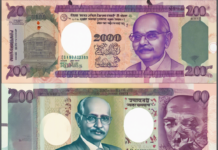Barbiturates are a class of drugs that have been used since the early 20th century for their sedative, hypnotic, and anxiolytic properties. They act as central nervous system depressants, producing a wide range of effects from mild sedation to anesthesia. While barbiturates were once commonly prescribed for conditions such as anxiety, insomnia, and seizure disorders, their use has declined significantly due to the high potential for abuse and overdose. Despite their decreased popularity, barbiturates are still encountered in medical settings and the illicit drug market, where they are known by a variety of dangerous nicknames due to their potent and sometimes deadly effects.
The History of Barbiturates
Barbiturates were first synthesized in the early 1900s as a replacement for sedative medications like bromides and chloral hydrate. The discovery of barbital by German chemist Emil Fischer in 1903 marked the beginning of a new era in pharmacology. Over the next few decades, numerous derivatives of barbital were developed, leading to the creation of a wide range of barbiturate compounds with varying levels of potency and duration of action.
In the mid-20th century, barbiturates became widely prescribed for conditions such as anxiety, insomnia, and epilepsy. They were also used as anesthetic agents in surgical procedures due to their ability to produce central nervous system depression. However, the addictive potential and risk of overdose associated with barbiturates soon became apparent, leading to stricter regulations on their use and a shift towards safer alternative medications like benzodiazepines.
Common Barbiturate Nicknames
Barbiturates are known by a variety of street names that reflect their effects, appearance, and methods of use. These nicknames are often used in illicit drug circles and can vary depending on the specific barbiturate compound. Some of the most common nicknames for barbiturates include:
- Barbs: A shortened form of the word “barbiturates,” this nickname is often used to refer to any drug in the barbiturate class.
- Downers: Barbiturates are central nervous system depressants that produce feelings of sedation and relaxation, leading to the nickname “downers.”
- Yellow Jackets: Some barbiturate capsules and tablets are colored yellow, leading to this nickname among users.
- Blue Bullets: Blue-colored barbiturate tablets may be referred to as “blue bullets” due to their shape and color.
- Rainbows: Barbiturates such as amobarbital, which come in various colored capsules, may be called “rainbows” by users.
Dangers of Barbiturate Abuse
While barbiturates can be effective medications when used as prescribed, abuse of these drugs can have serious consequences. Barbiturates have a narrow therapeutic index, meaning that the difference between a therapeutic dose and a lethal dose is small. This makes them extremely dangerous when misused or taken in excess.
- Overdose: Taking too much of a barbiturate can lead to respiratory depression, coma, and death. Overdose deaths from barbiturates are often the result of respiratory failure.
- Addiction: Barbiturates are highly addictive drugs that can lead to physical and psychological dependence with regular use. Withdrawal from barbiturates can be dangerous and should be done under medical supervision.
- Drug interactions: Barbiturates can interact with other medications, including alcohol, opioids, and benzodiazepines, increasing the risk of adverse effects and overdose.
- Accidental injuries: Impaired coordination and judgment caused by barbiturates can increase the risk of accidents, falls, and other injuries.
Treatment for Barbiturate Dependence
If you or someone you know is struggling with barbiturate dependence, it is important to seek help from a healthcare professional. Treatment for barbiturate dependence typically involves a combination of medical detox, behavioral therapy, and support groups. Here are some common treatments for barbiturate dependence:
- Medical detox: Detoxification from barbiturates should be done under medical supervision to manage withdrawal symptoms and prevent complications.
- Behavioral therapy: Cognitive-behavioral therapy (CBT) and counseling can help individuals understand and change the thoughts and behaviors that contribute to drug use.
- Medications: In some cases, medications may be used to help manage withdrawal symptoms and cravings during the recovery process.
- Support groups: Participating in support groups such as 12-step programs can provide encouragement, guidance, and accountability during recovery.
Frequently Asked Questions (FAQs) About Barbiturates
-
What are the effects of barbiturates on the body?
Barbiturates produce central nervous system depression, leading to sedation, relaxation, and decreased anxiety. They can also impair coordination, judgment, and memory. -
Are barbiturates still prescribed today?
While barbiturates are less commonly prescribed today due to their high potential for abuse and overdose, they are still used in certain medical settings for conditions such as epilepsy and anesthesia. -
How do barbiturates compare to benzodiazepines?
Barbiturates and benzodiazepines are both central nervous system depressants, but benzodiazepines are generally considered safer and less addictive than barbiturates. -
Can you overdose on barbiturates?
Yes, overdose on barbiturates can be fatal and is often the result of respiratory depression. Signs of overdose include extreme drowsiness, slowed breathing, and loss of consciousness. -
How long does it take to detox from barbiturates?
The duration of barbiturate detox varies depending on the individual’s level of dependence and the specific drug used, but symptoms typically peak within a few days and gradually improve over a week or two. -
Can you die from barbiturate withdrawal?
While barbiturate withdrawal is not usually life-threatening, it can be dangerous if not managed properly. Withdrawal symptoms may include seizures, hallucinations, and psychosis. -
Are there any long-term effects of barbiturate abuse?
Long-term barbiturate abuse can lead to cognitive impairments, memory problems, mood disorders, and increased risk of accidents and injuries due to impaired coordination and judgment. -
Can barbiturates be used as date rape drugs?
Yes, barbiturates have been used as date rape drugs due to their sedative and disinhibiting effects. They can be added to drinks to incapacitate victims and prevent resistance. -
Are barbiturates illegal?
Barbiturates are controlled substances in most countries due to their high potential for abuse and overdose. They are typically available by prescription only for medical use. -
What should I do if I suspect someone is abusing barbiturates?
If you suspect someone is abusing barbiturates, it is important to express your concerns and encourage them to seek help from a healthcare professional. Support and intervention can help prevent further harm and promote recovery.
In conclusion, barbiturates are a class of drugs with a long history of medical use and abuse. Their potent sedative effects have earned them dangerous nicknames in the illicit drug market, where they are still encountered despite tighter regulations. Understanding the risks of barbiturate abuse, recognizing the signs of dependence, and seeking appropriate treatment are essential steps in addressing this ongoing public health concern. Awareness, education, and support are key in promoting safe and responsible use of medications and preventing the harmful consequences of drug misuse.









